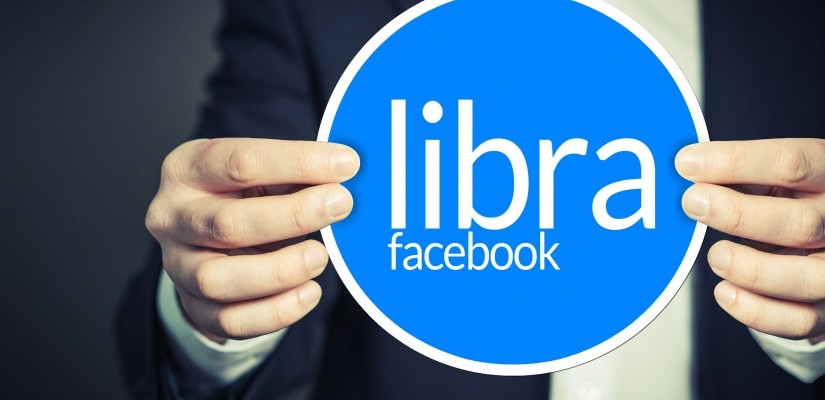Facebook is preparing to expand its business outside of its traditional social media platform into payments and commerce. Libra, Facebook’s new cryptocurrency, is set up to become a global currency and financial infrastructure utilized by billions of WhatsApp and Messenger users. The decision comes amid the U.S. Government inquiry into the company for failing to protect its users’ data from being exploited without their consent. It also raises more data privacy concerns as Libra would be able to generate meaningful data for advertisement targeting based on some 2 billion Facebook users’ spending habits. Additionally, the project risks falling short with its goal of reaching some 1.7 billion unbanked adults globally.
Libra comes as Mark Zuckerberg, Facebook’s founder and Chief Executive Officer, works on positioning Facebook as the dominant player in virtual currency. Facebook will not fully control Libra; The Independent Libra Association will oversee and manage Libra’s development. According to Libra’s white paper, the Libra Association has 28 out of 100 projected partners thus far. The partners come from payment networks like Visa and Mastercard; fintech firms like Coinbase and PayPal; venture capital like Thrive and Andreessen Horowitz; NGOs like Kiva and Women’s World Banking; telecoms like Vodafone; and software services like eBay, Lyft, and Uber. The Geneva-based Libra Association will need to reestablish trust with the Facebook community after the Cambridge Analytica and other data breach scandals.
Nevertheless, Facebook’s subsidiary company Calibra, is developing a cryptocurrency wallet which will be available in WhatsApp, Messenger, and as a standalone application by 2020. Calibra could help Facebook establish a monopoly within the payments and commerce industry if the Facebook community decides to use the version of Calibra integrated within WhatsApp and Messenger. Should it be successful, Facebook will be able to harvest more data on some 2 billion Facebook users’ spending habits and aggregate Calibra data to market Calibra products and services for the company’s benefit and to improve the Calibra product experience.

The new Facebook endeavor received pushback from Capitol Hill as the U.S. House Financial Services Committee announces a hearing on Facebook’s cryptocurrency for July 17, one day after the Senate Banking Committee will hold its hearing on Libra. Representative Maxine Waters, chairwoman of the House Financial Services Committee, asked the company to suspend development of the cryptocurrency until more details about Facebook’s role in Libra are made clear. Furthermore, Senate Banking Committee ranking member Sherrod Brown expressed his concern with the project and stated that Facebook could not be allowed “to run a risky new cryptocurrency out of a Swiss bank account without oversight.” Both chambers of Congress raise concerns on how the project would work and how Facebook would handle user data this time.
Libra will be layered on top of the existing financial system since each coin will be backed by fiat currency in banks to support a stable price. While traditional peer-to-peer payment networks like PayPal, Venmo, or even Western Union are not interoperable and charge arguably high transaction fees, Libra is setting up foundations for a unification of payments on a global scale and at a much lower cost. The approach should serve Libra’s mission to “enable a simple global currency and financial infrastructure that empowers billions of people.” Still, this endeavor would have difficulties with reaching some 1.7 billion unbanked people globally.
According to the World Bank’s Global Findex Database 2017, half of all adults who don’t have bank accounts are living in just seven countries: Bangladesh, China, India, Indonesia, Mexico, Nigeria, and Pakistan. While cryptocurrency is implicitly banned in China and Bangladesh, Libra will not be available in India as Facebook has not filed an application with the Reserve Bank of India for the use of its cryptocurrency there. Pakistan is considering regulation for cryptocurrencies, but currently, cryptocurrencies are forbidden by law. In Nigeria, people still prefer fiat currency because they worry their money will be lost if their phones are stolen. Furthermore, Libra will face regulatory issues and the lack of necessary technological conditions in Mexico. These situations leave only Indonesia as a potential new market for Libra as the country recently made cryptocurrencies legal, and Facebook sees it as an area of growing daily active users.
Facebook is facing many uncertainties with its cryptocurrency. Libra seems somewhat more accessible to the people with bank accounts and credit cards than to the unbanked global population. The U.S. Government is well aware of the situation and plans to put Facebook under more scrutiny in order to prevent any future data breaches from the company. While the Facebook community might appreciate a cost-effective global payment system, users may not want Facebook to use data on their spending habits for the company’s gains. Therefore, to regain trust from their users and to provide a financial service to some 1.7 billion unbanked adults globally, Facebook’s Libra will have to become more transparent and remain compliant with the global financial system.
